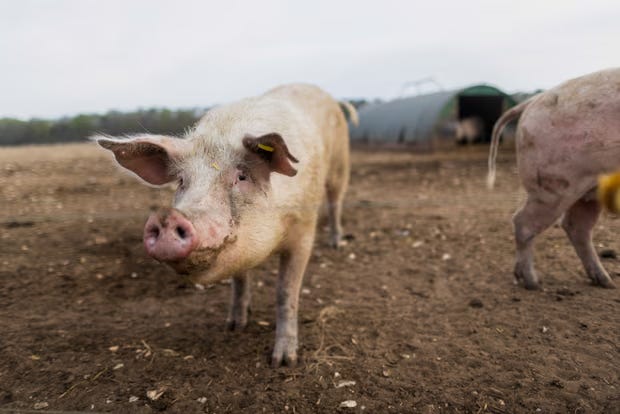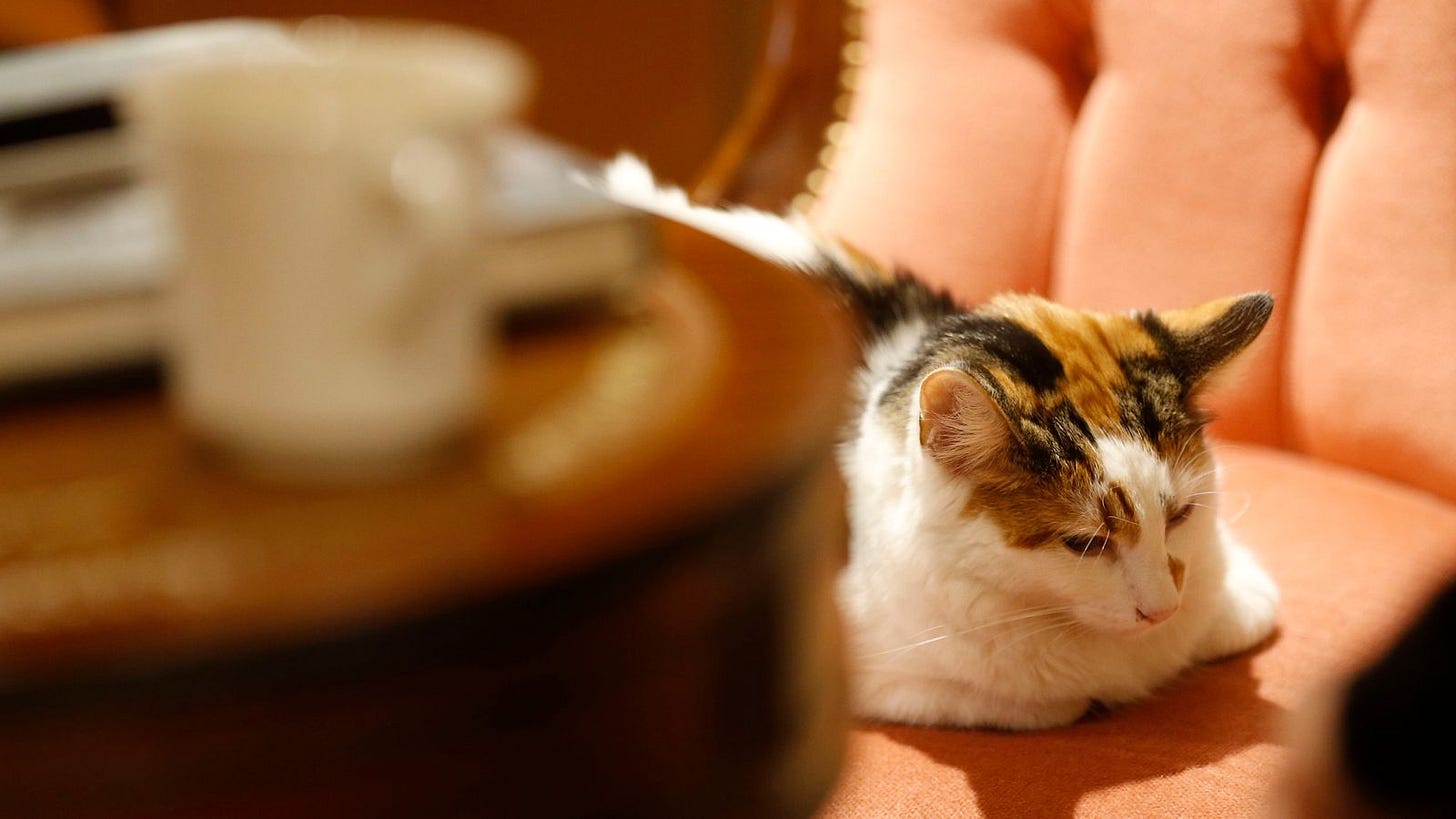Online fashion firms create 940m plastic bags in just one year
A 5p charge was first introduced in supermarkets in 2015. Since then, usage at the main retailers has dropped by more than 98%. But now there is a new plastic menace in our lives.
Online fashion retailers delivered 941 million plastic bags to UK shoppers last year alone, equating to 2.6 million bags every day - adding to our plastic pollution crisis.
Experts say this is widening the gap between high-street and web retail in efforts to move away from single-use bags.
The high-street levy introduced in 2015 has cut plastic bag use by 98% but as shoppers migrated online, ecommerce plastic bag use - especially by fast-fashion brands - has continued to increase.
Only 9% of bags used as packaging delivered across the UK are currently being reused or recycled, while the remaining 91% end up in landfill or incineration, equating to 857 million bags just last year.
The growth in online shopping and the slow progress on increasing recycling rates mean by 2030, over 1 billion plastic bags will end up in landfill or burned annually.
Analysis by Development Economics, commissioned by sustainable packaging business DS Smith reveals that the UK now tops the table for the biggest number of plastic plastic delivery bags in Europe - using 150 million more than Germany, which came in second.
The research estimates that the number of bags in use is set to increase by 40% between now and 2030, in line with the expected growth in online fashion sales. This means by 2030, 1.3 billion plastic delivery bags will be arriving on UK doorsteps each year, adding up to 6.9 billion bags in the next five years.
Stefano Rossi, divisional CEO of Packaging at DS Smith, said: “With some of the biggest brands in the world, we estimate that we’ve already replaced more than 1 billion pieces of plastic over the last four years – but we must do more.”
While online shopping has grown, ecommerce retailers lag high-street stores when it comes to replacing plastic bags.
Plastic’s journey is catastrophic for the environment, posing a threat to the climate as it slowly breaks down and releases greenhouse gases, and infiltrates our waterways, soil and oceans. Smaller fragments called microplastics can enter our soil and water posing a health hazard for wildlife.
A new study by the University of Manchester has found significant concentrations of microplastics in the male reproductive system of sea turtles.
Scientists studied the bodies of 10 stranded loggerhead sea turtles that suffered drowning and exhaustion when they were accidentally caught up in commercial fishing nets. The findings, published in the journal Marine Environmental Research, could spell disaster for the majestic creatures already found in declining numbers in the world’s oceans.
It is the first study to show that microplastics from the gut can translocate in sea turtles, opening up the possibility of different organs - especially the reproductive system - being directly affected.
Environmental scientist and founder of One Home, Angela Terry, said: "It's shocking that 857 million bags used as packaging delivered across the UK will be burnt or sent to landfill in 2025.
"This is in sharp contrast to shopping at our local high street where consumer behaviour has shifted to using bags for life - a more sustainable option. With online shopping growing every year it's essential that plastic packaging decreases and recycling rates increase.
“Meanwhile, supporting your local high street is not only better for the local economy but can reduce how much we spend due to the increase in conscious consumerism rather than quick click thrill of online shopping."
ENVIRONMENT ROUND-UP
‘Megafarm’ plan cast out
Controversial plans for a US-style ‘megafarm' in the Norfolk countryside were refused after thousands of objections.
The firm, Cranswick, a FTSE 250 company that supplies the UK's major supermarkets, faced major opposition after it submitted plans to house 14,000 pigs and 870,000 hens at linked locations which would have made it one of the largest megafarms in Europe.
King’s Lynn and West Norfolk Borough Council’s planning committee unanimously voted against the planning application. It has received 15,000 objections filed against it including environmental and animal welfare groups raising concerns about the impact it would have on local on ecology and fuelling the climate crisis.
Norfolk has already been dubbed the “megafarm capital of Europe” with statistics from Compassion in World Farming showing there are now 122 megafarms in the County and 25,748,309 factory farmed animals.
Terry Jermy MP, Member for South West Norfolk, called it a “victory for local people and the environment.”
Jake White, Head of Legal Advocacy at WWF said: "This is a well-deserved win, not just for the environment but for the local community who united to oppose this unpopular, unlawful and unsustainable megafarm.
“This case is clearly symbolic of broader issues at play across the UK. When considering the most sensible use of our limited land, we must prioritise protecting and restoring nature and supporting farmers to produce healthy, sustainable food.
“That's why WWF is urgently calling for a new law - the Living Planet Act - to ensure the government takes a ‘joined-up’ approach to climate and nature action so landmark decisions such as today's do not stand alone."
A Cranswick spokesperson said: “We are incredibly disappointed by today’s decision. This is a bad day for the sustainable production of British meat. We’ll now take time to review the decision and consider the options available to us.”
Cat cafes need to go
From Leeds to Brighton there are now over 30 cat cafes in England.
Nearly half were granted licences in the last financial year - a staggering rise in the number of premises.
It is believed that there are many more operating without regulation because of "unclear" legislation.
But two leading pet welfare charities - the RSPCA and Cats Protection - are calling for a phase-out as they say it's "almost impossible" to meet the animals' welfare needs.
Alice Potter, a cat welfare expert at the RSPCA, said: "We adore cats, and so we understand the appeal of cat cafes. But while cats, cake and coffee may be a happy combination for people, for cats it's likely to be a very different story.
"We don't believe these environments can consistently provide cats with a good quality of life and are hugely concerned many cats will be unhappy as a result."
Experts say that having descended from solitary, territorial, roaming wildcats, they're likely to find the enforced proximity to other felines as well as unfamiliar visitors wishing to stroke them stressful. Also generally, cats are not sociable and many felines often prefer to live without others or prefer to form social groups with their relations.
There is also the risk that competition for resources could lead to some cats not eating as much and not being able to use a litter area as it may be guarded by another animal.
Some cat cafes are inside shopping centres, too, prompting fears that the cats living there may never see daylight or breathe fresh air.
Daniel Warren-Cummings, central behaviour officer for Cats Protection, added: "Cats are not built to share space with a high number of other cats - it only happens because humans force the matter.
"Although many cafe owners start their enterprise out of a desire to help unwanted cats, they will ultimately commit themselves to having high numbers of animals to meet consumer demand, which makes it difficult to run these businesses in a way that truly protects cat welfare."
The RSPCA and Cats Protection are urging local authorities not to grant new exhibition licences for these establishments and not to renew existing ones. In the long term, they want them to not be allowed to operate.
But Sarah Price, the owner of The Cat House in Norwich, says she believes the RSPCA should work with cat cafes rather than calling for them to be "phased out", adding that the charity should inspect the cafes and draw up a code of practice.
Wildfires engulf countryside
Devastating wildfires engulfed parts of the South this week, while the warm, dry weather makes further outbreaks likely.
Firefighters had to battle on multiple fronts as the infernos tore through woods and heath.
On Monday, a blaze closed the Moors Valley Country Park & Forest attraction, at Ashley Heath, Dorset. It is set to reopen today.
Two more major wildfires ripped through spots on the south coast on Wednesday and yesterday.
Eighty firefighters tackled flames for more than six hours on Wednesday night as a blaze swept across 37 acres of Upton Heath, near Poole, Dorset. Many then tackled a six-acre blaze at nearby Canford Heath, from 5.30am yesterday.
Both fires were under control by 7am with crews dampening down the remaining hot spots.
Several hectares were destroyed at the country park, which has outdoor activities including a high ropes course and miniature railway.
The park asked visitors to "respect and follow" diversions put in place in the forest.
Dorset & Wiltshire Fire and Rescue Service said: "The cause of the fire is still unknown at this time.
"There is currently an amber wildfire alert in place for the service area, and we urge people to take extra care while enjoying our open spaces in the sunshine. Heath fires can occur any time, and we advise everyone to remain vigilant."
Resident Harvey Pocklington, 19, who lives near Upton Heath, said: "I'm saddened for the wildlife and I'm pleased nobody was hurt." Another resident described the sky "turning red" over Canford Heath.”
Some content in this newsletter may contain affiliate links. We may receive a commission on any sales we generate from them. Learn more.
Thank you
I hope you’ve enjoyed my latest newsletter.
By supporting this newsletter you are helping to fund environmental investigative journalism, vital in this time of a climate emergency.
Thanks for reading.
If you have been forwarded this email and would like to sign up, you can do that right here.
Please let me know what you think and the issues you want to be investigated.
Until next week,
Nada
Contact us: You can get in touch via email - earthwatch@mirror.co.uk - or via my Twitter page.
Or let me know what you think in the comments below.










I never really thought about Cats in cafes but after reading your article I think they are like Guide dogs but for nothing other than petting rather than a job. There is one in Eastbourne town centre and they charge £5 just to use cafe - Why ?
Why do mail order firms use plastic bags?